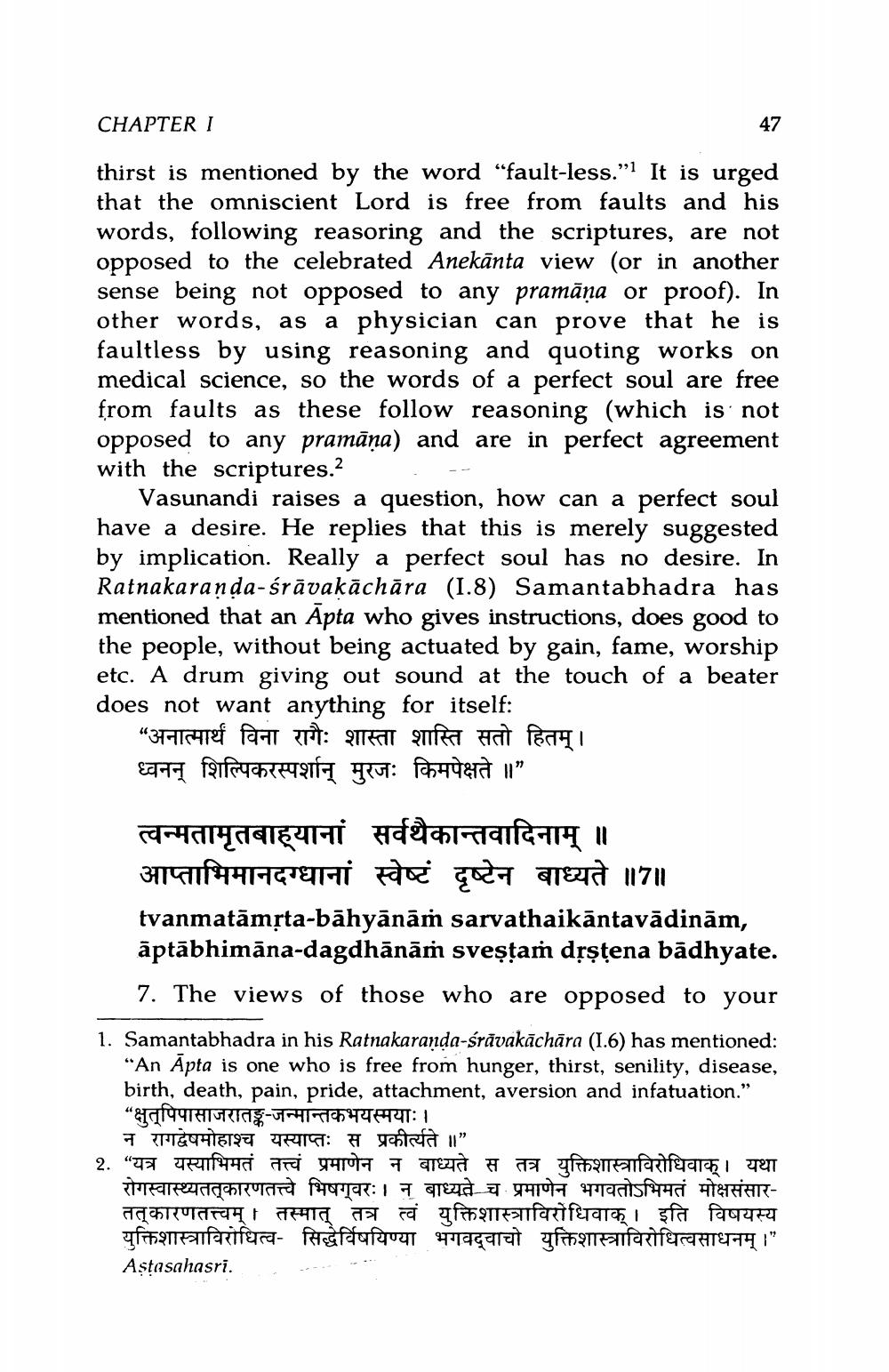________________
CHAPTER I
thirst is mentioned by the word "fault-less."l It is urged that the omniscient Lord is free from faults and his words, following reasoring and the scriptures, are not opposed to the celebrated Anekānta view (or in another sense being not opposed to any pramāņa or proof). In other words, as a physician can prove that he is faultless by using reasoning and quoting works on medical science, so the words of a perfect soul are free from faults as these follow reasoning (which is not opposed to any pramāna) and are in perfect agreement with the scriptures.2 . --
Vasunandi raises a question, how can a perfect soul have a desire. He replies that this is merely suggested by implication. Really a perfect soul has no desire. In Ratnakaranda-śrāvakāchāra (1.8) Samantabhadra has mentioned that an Āpta who gives instructions, does good to the people, without being actuated by gain, fame, worship etc. A drum giving out sound at the touch of a beater does not want anything for itself:
"अनात्मार्थं विना रागैः शास्ता शास्ति सतो हितम्। ध्वनन् शिल्पिकरस्पर्शान् मुरजः किमपेक्षते ॥"
त्वन्मतामृतबाह्यानां सर्वथैकान्तवादिनाम् ॥
आप्ताभिमानदग्धानां स्वेष्टं दृष्टेन बाध्यते ॥7॥ tvanmatāmịta-bāhyānām sarvathaikāntavādinām, āptābhimāna-dagdhānāṁ sveștam dịştena bādhyate.
7. The views of those who are opposed to your 1. Samantabhadra in his Ratnakaranda-śrāvakāchāra (1.6) has mentioned:
"An Apta is one who is free from hunger, thirst, senility, disease, birth, death, pain, pride, attachment, aversion and infatuation." "क्षुत्पिपासाजरातङ्क-जन्मान्तकभयस्मयाः।
न रागद्वेषमोहाश्च यस्याप्तः स प्रकीर्त्यते ॥" 2. “यत्र यस्याभिमतं तत्त्वं प्रमाणेन न बाध्यते स तत्र युक्तिशास्त्राविरोधिवाक्। यथा
रोगस्वास्थ्यतत्कारणतत्त्वे भिषग्वरः । न बाध्यते च प्रमाणेन भगवतोऽभिमतं मोक्षसंसारतत्कारणतत्त्वम् । तस्मात् तत्र त्वं युक्तिशास्त्राविरोधिवाक् । इति विषयस्य युक्तिशास्त्राविरोधित्व- सिद्धेर्विषयिण्या भगवद्वाचो युक्तिशास्त्राविरोधित्वसाधनम् ।" Astasahasri. .. ..




